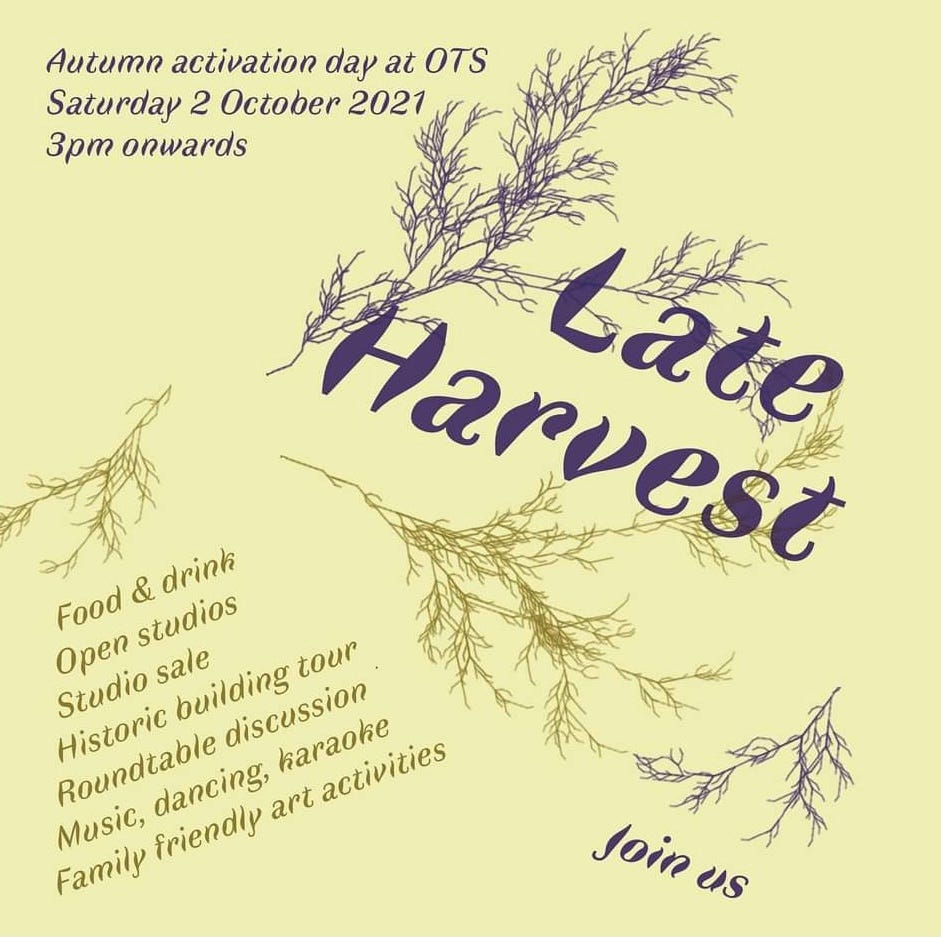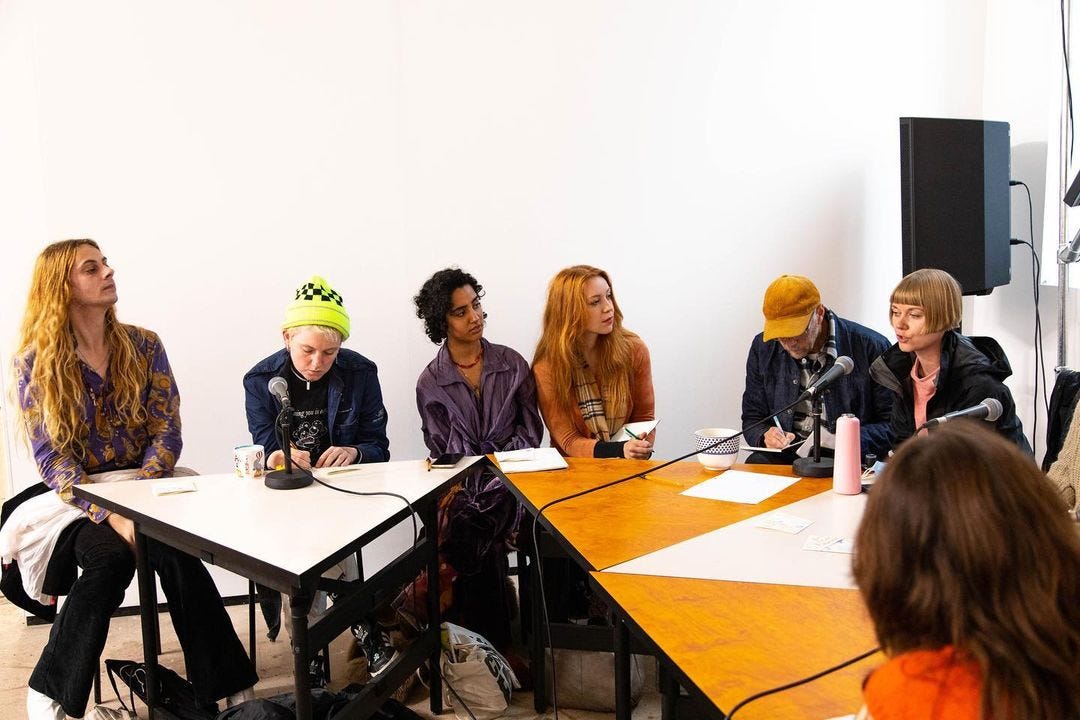Turning the Soil Panel Discussion
We got invited to a round table discussion! We ate really nice cakes! We made new friends!
We arrived at 1 Thoresby Street and stepped into the buzz. A colourful patchworky draped marquis (made by artist Sophie Giller) blocked out the grey sky, protecting us as well as the tea, coffee, vegan cakes, and samosas from the elements. Children made clay faces with flowers pressed into them. A small fountain was being assembled. People perched and chatted.
The Late Harvest marks the 13 years that 1 Thoresby Street have occupied their current space, and for how long they can stay there still remains to be seen, in an area being rapidly redeveloped. Local artist-led groups were invited to this panel discussion to reflect on the changing landscape of the area, the challenges we face, how we self-govern, and our hopes for the future. These groups included Kuhle Wampe, Four/Four collective, Chaos Magic space, Gasleak Mountain, Mansions of the Future, and us. The conversation was facilitated by Sean Cummins, Effy Harle & Sophie Mackfall.
As a project conceived by and made up of non-local artists, we didn’t have the locational knowledge of the other groups (if you’re interested in how DARP came to be, have a look at Ella’s excellent explainer video here). Having started just under a year ago in the height of lockdown, the opportunity to meet and connect with other artist-leds was limited, and is something we have only come to more recently. For this reason we were very excited to meet everyone, and felt honoured to be part of the conversation.
Each of the forward-thinking groups seemed to be working out of a medley of spaces. Basements, old shops, disused allotments - anyplace where things weren’t happening that could be happening, they made happen - from 13 act plays to potion gardens to discos, of course. Living and practicing in this big ol’ school, we felt right at home.
The discussion was named “Turning the Soil”, in the spirit of change, of shaking things up. Turning the soil, or tilling, is an agricultural practice traditionally used to aerate soil, to shuffle nutrients and get rid of old crops before the new season. However, as a few people present pointed out, the harms associated with tilling may outweigh the benefits. Tilling can provide immediate fertility, but is actually counterproductive for long-term fertility and healthy soil. Ideally, one should nurture and feed the soil gently rather than ripping it up. Turning the soil can lead to eroded, barren land.
So perhaps this title was more revealing than we initially thought. The current political and economic ‘factory farm landscape’ might mean that in order to grow creativity crops, turning the soil is key to survival. For smaller artist-led groups, continually adapting and reinventing can certainly be exciting, but might not be the best conditions to grow what we think of as a larger or ‘established’ long-term institution. But maybe that’s not what we need at this point.
A recurring theme for all the groups was the uncertainty when it comes to resources, space, and time. These uncertainties could be seen as obstacles (and they are), but everyone recognised the more beautiful side. Each group challenged, and was challenged by, the need for time-space-money. There was an emphasis on offerings, on recognising abundance, on supporting each other and supporting communities, of creatively fulfilling needs and desires. At Darp we are blessed with an abundance of space, a proximity to nature, our communal life. We consider ourselves to be an ‘open system’ in a constant state of ebb and flow, changing with the residents, the seasons, and maybe even the moon.
Sophie and Sonia took the mic, “RATS. We currently have a huge rat infestation.”
This wasn’t entirely true. They are actually mice. We are trying to deal with it as humanely as possible. They seem to enjoy nibbling garlic breadsticks and armchairs the most.
It’s important to remember that although we don’t know how long we will be in this big old school, we will always keep what we have learned here. Darp is something we believe can be transplanted and propagated and grow new roots. Envisioning uncertain futures is part of our work as artists, so in a few years when we can finally start using time machines we might have MARP (Medieval Artist Residency Programme) or FLARP, BLARP, CARP, SHARP, HARP, DJARP, TARP.
When asked about our hopes for the future, Adam Grainger from 4/4 Collective made a humbling point, “I hope that in 5 years, none of us are here. I hope we have passed on the baton and are letting the next lot of artists have a go.” I hope so as well, and I hope that we might have set a good example for them. Or, maybe even a really terrible example - a cautionary tale that is exciting, freaky, dramatic, unforgettable, beautiful, strange, and educational all at once. Dissolving and decomposing processes are also hugely important to maintain a healthy soil environment.
We concluded the conversation as you always should - by inviting everyone to our party! Photos to come soon…



